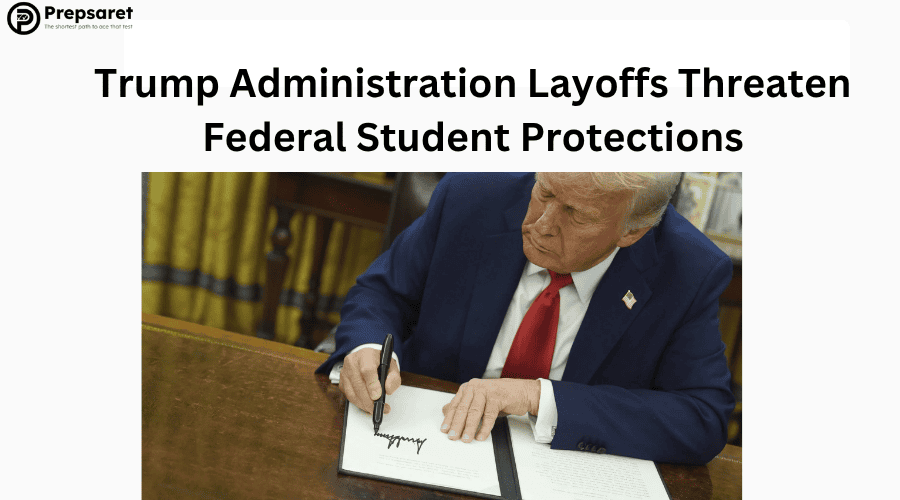Key Points
- Trump administration layoffs have severely reduced the Department of Education’s ability to enforce special education and civil rights laws.
- Education Secretary Linda McMahon argues the cuts demonstrate the department’s redundancy and supports returning education oversight to the states.
- Critics warn these reductions undermine protections for students with disabilities and civil rights enforcement.
- Federal funding continues for now, but future allocations may be delayed if staff shortages persist.
- Legal challenges could determine whether laid-off employees return or the cuts are upheld.
Trump Administration’s Education Cuts Spark Concerns
The U.S. Department of Education is facing unprecedented staff reductions as the Trump administration moves forward with layoffs during a government shutdown. More than 460 employees were recently cut, following earlier reductions that halved the workforce. These layoffs have particularly impacted offices that handle federal funding and enforce special education and civil rights laws.
Nearly all staff in the Office of Special Education and Rehabilitative Services, which oversees $15 billion annually for students with disabilities, were affected. The Office for Civil Rights (OCR), responsible for investigating racial, gender, and disability discrimination in schools, also lost most of its enforcement staff. Critics say these cuts significantly weaken the department’s ability to uphold federal protections.
Margaret Spellings, former Education Secretary under George W. Bush, described the layoffs as “a thwarting of federal law and congressional mandates.”
Education Secretary Linda McMahon defended the reductions, arguing that schools continue to operate and receive funding despite the cuts, reinforcing the case for state control of education. Project 2025 supporters suggest some responsibilities could be shifted to the Justice Department and Health and Human Services.
While current federal funding for student loans and low-income school programs remains in place, future disbursements—including Impact Aid for 1,000 school districts—may face delays. A federal judge has temporarily blocked the layoffs, leaving the department’s future in legal and political uncertainty.
Find Out: How to Become a Teacher in Washington
Similar Story: Trump administration targets college prep program Republicans defended

